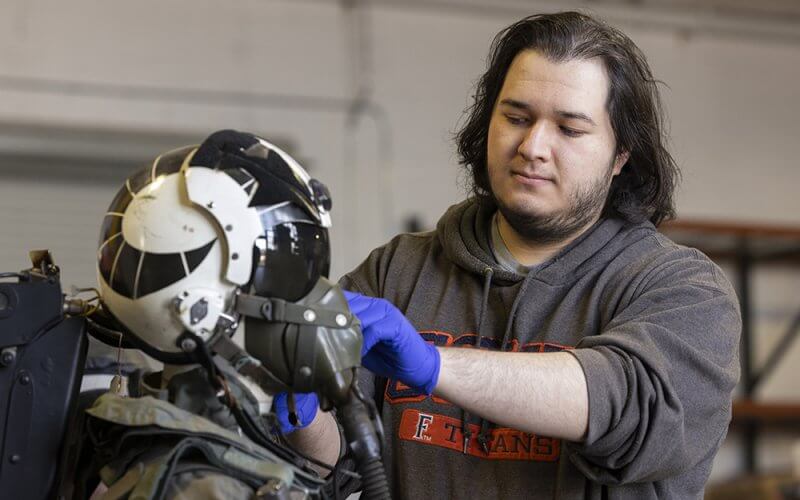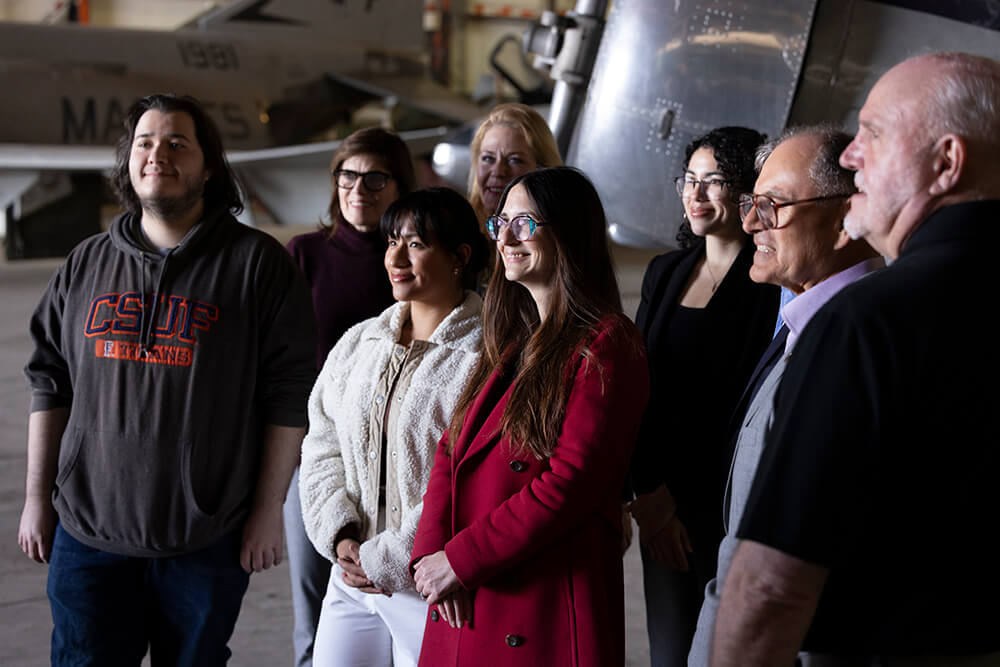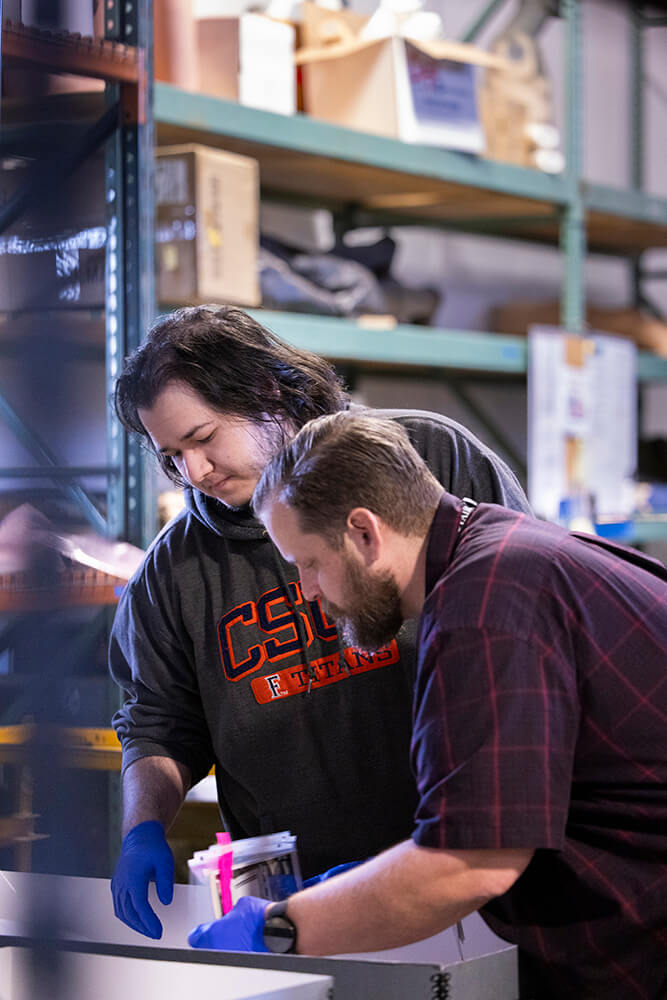
Inside a World War II squadron hangar on the former Marine Corps Air Station El Toro, Cal State Fullerton history major Eli Wolcott is working toward digitally and physically preserving historical artifacts about the men and women who served at the Orange County base.
As an intern with the Flying Leatherneck Aviation Museum, Wolcott catalogs the heroics and memories of World War II Marines — to the stories of military brotherhood and aviators to memorialize the legacies of those who served.
Wolcott, who aspires to a career as a museum curator, is gaining hands-on work experience as a museum intern through the College of Humanities and Social Studies’ Passage to the Future program.
Passage to the Future, launched in 2022, offers students practical work experience through internships, professional development and career exploration activities. The goal is to help humanities and social sciences majors prepare for careers and become workforce-ready.

“We designed Passage to the Future to help students identify the career paths that align best with their values and passions,” said Jessica Yirush Stern, dean of the college. “We steward students through developing networks, skills and portfolios that will complement their academic degrees and make them competitive for their dream jobs.”
Over 300 undergraduate students are participating in the program this academic year, and six students, including Wolcott, have secured internships this spring semester, said Chérie Rolapp, who manages Passage to the Future.
As part of the program, students enroll in a three-unit elective course to learn about career possibilities and earn a certificate after completing coursework and activities.
Students develop leadership skills, participate in field trips to partner company offices like Google and Edwards Lifesciences, and attend academic and industry conferences to learn about a range of careers available to them.
Graduates of the program are eligible to become Passage Fellows and gain access to internships. Students are placed in paid intern positions with the program’s partners, which includes local corporations, nonprofits and governmental agencies, to help them graduate with firmer career prospects.
The Flying Leatherneck Aviation Museum recently announced its support for two Passage to the Future and Lawrence de Graaf Center for Oral and Public History internships each semester starting next year, one paid and one for academic credit.
Stern, who spearheaded the Passage to the Future initiative, said the museum is an ideal new partner for the career development program.
“A number of our students want to explore careers in public history, and having the museum as one of our Passage partners allows multiple students each year to explore museum work and develop the skills needed to be successful in this industry,” Stern said.

Wolcott, who is on track to graduate in May, works in the museum’s hangar’s archival space, dubbed the “vault,” meticulously cataloging military artifacts to ensure accuracy for the future exhibits. He’s learning about artifact handling, preservation methodology, the digitization of materials, historical research and exhibitry.
On a given day, he might scan photographs and documents that tell the service record of a 1960s helicopter pilot’s military life of flying U.S. presidents on HMX-1 “Nighthawks,” better known as Marine One. Wolcott is also researching pilot uniforms from various military periods to be historically correct when displayed on mannequins inside the aircraft exhibits.
“Through my work, I’m helping to ensure that the history of Marine Corps aviation is safeguarded to educate the public and give them a glimpse into those who served,” Wolcott said.
“A big part of my desire to become a historian is to make certain that the truth behind history is preserved and that the public has access to the past.”
Humanities’ Diversity in Tech and Social Justice
Passage to the Future relies on philanthropic support and grants. The program has been awarded over $270,000 in grants from the California State University Hispanic-Serving Institutions Community Grants, part of the CSU initiative of the Global HSI Equity Innovation Hub.
Rolapp said the grants support students using their humanistic and social scientific backgrounds to land careers in science and technology industries.
This year, Passage to the Future started a new pathway called “Tech and Civic Scholars.”
“This latest effort will equip students with applied community technology, research skills and internships with regional nonprofit organizations dedicated to social justice and immigration causes,” Rolapp said.